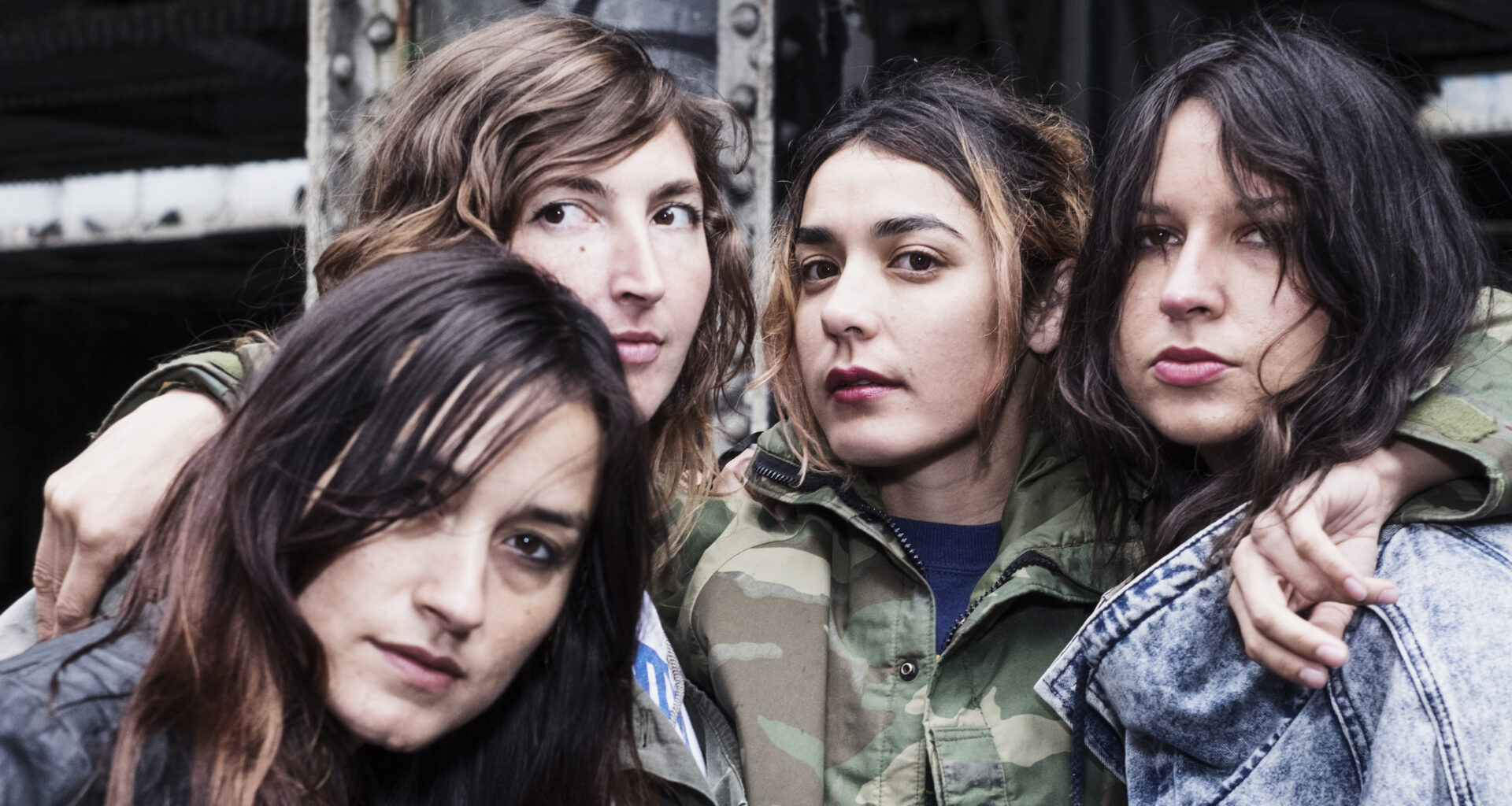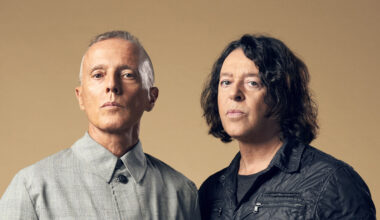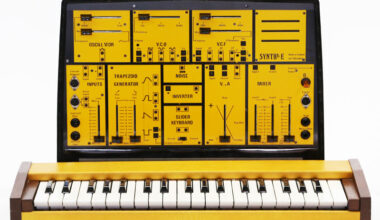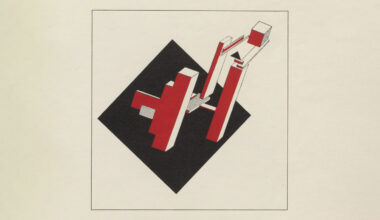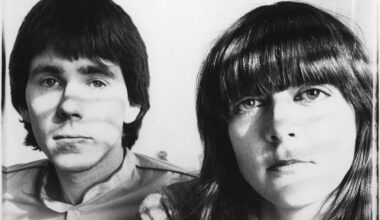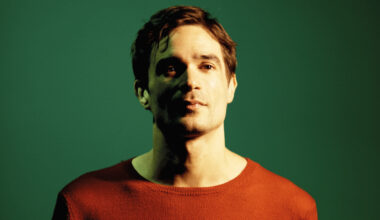Despite their confrontational moniker, Warpaint are a harmonious bunch, both musically and personally. Bassist Jenny Lee Lindberg offers some wise words on how to be in a band that matters these days
“Let’s start a band, I want to be Warpaint,” said a friend a couple of years ago. She wasn’t the first and won’t be the last. The Los Angeles foursome incite a cult-like passion in otherwise ordinary human beings across the world. They’ve recruited slowly and meaningfully with intense and captivating live shows, but recently Warpaint have shut themselves away to record a third album to satiate their followers – and it’s ready.
‘Heads Up’ is a meaty listen. There are more voices on this record, more harmonies. The opener, ‘Whiteout’, is a track to be particularly proud of, boasting a three-part harmony, something that Warpaint hasn’t tried before. It works. The whole thing is dancier and catchier, but retains the layered experimental pondering and meandering ideas that have always set them apart. They sound closer than ever before, a force immune to the wax and wane of the tempestuous music industry that has surrounded them for the past 12 years.
It’s early summer, and they’re in London playing their first gig for a year. It feels like a good time to harvest some tips on being in a successful band like Warpaint.
“If you’re starting off as a band,” says founding member and bassist Jenny Lee Lindberg, “don’t be directly influenced by other music or other bands. Just be inspired by them and figure out what it is that you like about them and how can you evoke the same kind of feeling that you get listening to them through your own music. I think people get a little carried away with wanting to sound exactly like somebody else. It’s a shame and a bit of a waste because every single person on this earth, as similar as we all are, is unique and has their own voice and their own way to express things.”
Jenny speaks slowly, drawing out her words, leaving you hanging on every syllable. She seems to like imparting advice, sagely drawing buckets of the stuff from a deep well.
“Communicate and be open and don’t take things personally,” she says.
The tone and delivery of what you’re saying is very important too, apparently. Communication is the buzzword here, Jenny uses it liberally. It makes you wonder what sort of squabbles she’s endured with Emily, Theresa and Stella in the past in order to place so much value on one term. Among other pointers, she suggests taking a break between touring and recording. Each of the band recently indulged their separate creative endeavours with Jenny herself releasing her first solo record.
“Always trust your gut when you’re writing a song,” she continues. “Go with what first comes out and have fun. If you’re not having fun then you’re not doing something right. Tap into your child-like self and your imagination and create from there. That’s always the most magical. It’s real, it’s vulnerable and it’s you.”
Listening to Warpaint, it’s easy to picture these four women sitting around, jamming out new song ideas without having to utter a word. They’re wholly comfortable around one another, seemingly even moving as one. Ask them for a photo and they curve and mould together like it’s the most natural thing in the world. But surely they’re not immune to the self-examination and circumspection that the rest of us battle with. Does Jenny feel like there are limits or restrictions in what she can say or do, musically or otherwise?
“I honour myself and come from a place of integrity and humility,” she says. “Every day I try to be as good a person as possible; be kind, be compassionate. I’m not trying to be anyone else, I’m just me and that’s just the way that it is and I’m happy with that.”
What if she had a time machine and could travel to any era, any place, where would she go and who would she be? In short, which band would Jenny Lee Lindberg be in if not Warpaint?
“I’m an 80’s baby, it’s the music that I loved when I was growing up,” she says. “I still love it now and I’m still discovering bands from that period that I almost prefer to any new music.”
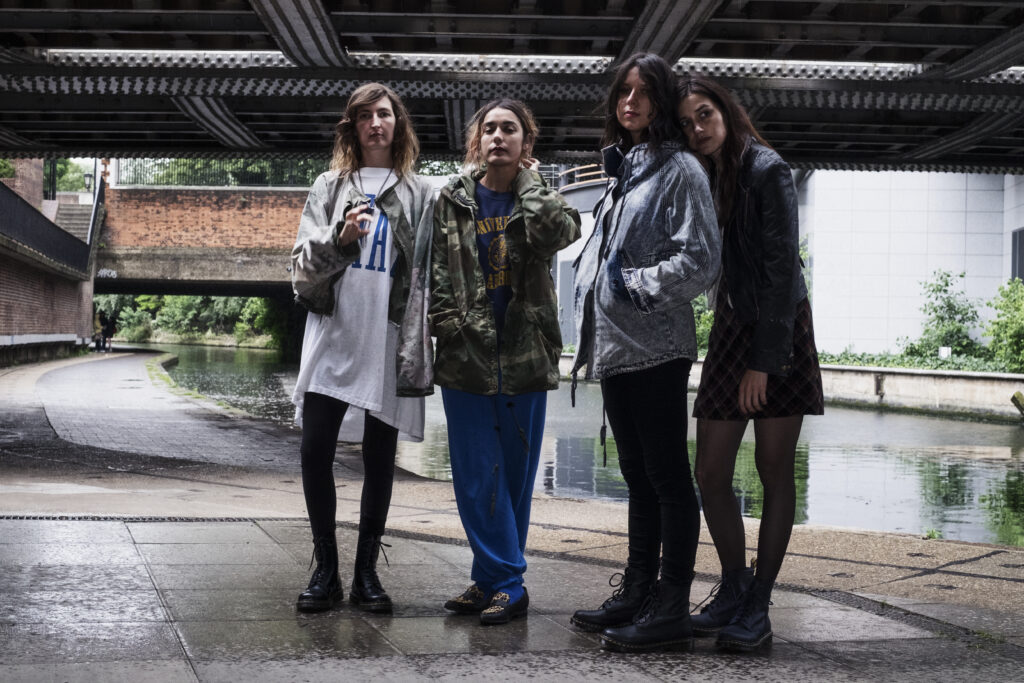
Fully expecting her to launch in to a list of prophetic artists and hungry for specifics, I press her on this question to no avail. A hypothetical time machine! Surely she’s going to take that for a spin. But her answers lack any examples and she quickly tires of my line of enquiry, trying hard to elaborate on that sound she’s thinking about.
“I guess you’d call it post-punk. It’s got a little bit of an edge to it so it’s not disco and it’s not punk but it definitely gets you dancing.”
A little surprised at her vagueness, I form a new theory about Warpaint. Perhaps they’re a creatively introverted bunch, purposefully distanced from music past and present. It transpires that around the time of this album’s creation the only things Jenny listened to were mixes of it, or silence. She drives in silence, and rarely listens to music at home. She doesn’t engage with reviews because, in her mind, they’ve already created their art and she feels the subsequent perception of it is almost none of her business. She’s not online. Maybe the ultimate key to being in a band like Warpaint these days, is to maintain a clean canvas to work on.
“I know that there’s a gazillion amazing bands,” she says, “but maybe there’s just too much music to listen to with the internet, with Spotify and streaming. These are things that weren’t really available 12 years ago. All music is so accessible at this point, but sometimes it’s a little bit overwhelming.”
Anyone who’s lived through this change can empathise. Keeping up with new music is more than a full-time occupation. Attempting to give everything a listen can leave you feeling numb and worn and uninspired.
Warpaint have experienced quite a turbulent time and seen a lot of change within music; not only the rise of internet dominance, but the fall of record sales and the pressure to tour the hell out of every single release. I wonder what other changes they’ve seen during their tenure.
“We’ve seen people say ‘This is what is happening right now!’, and then that trend gets exploited and burnt out. Then something new happens, and people grasp on to it, then that starts to burn out,” she says wearily. I begin to worry that my questions are somehow depressing her. There’s a pause in our conversation as she waits for another question. Jenny’s eyes when resting are so intensely hazel and wide that they look animated, then without cue, those eyes grow even larger.
“I was in a coffee shop and I heard The Shins’ first album come on,” she says, suddenly.
“There was something refreshing about it. I thought I really miss this kind of music, I miss bands. I miss… I want to say indie rock, but that’s become a genre of music that’s not even really happening anymore.”
A little mental arithmetic places the release of The Shins’ first album a few years before Warpaint got together. She’s talking passionately now.
“There’s a lot of albums and music that I feel was exciting at that time,” she offers. “It was new to me. There was just a bunch of bands like The Shins, The Rapture, Modest Mouse: a whole movement that had a big following, but they weren’t mainstream. It’s not that they weren’t popular or respected or well known, they just weren’t on commercial radio. At that one time there were so many bands that I loved. I haven’t felt that in a really long time.”
Here’s the real answer to the time machine question and possibly the answer most people might give. Jenny isn’t asking to be Bowie or Fleetwood Mac, or to live through the 60s, she’s excited about revisiting that time when you’re a teenager and just getting enraptured by new music for the first time. I’m watching her have the emotional swell that occurs when you think back to your first gig or festival, or the album you coveted so much that waiting for its release date was painful. Perhaps this is the music that acted as the catalyst, sparking the creativity that nurtured Warpaint in the first place.
Having spoken of the past, it feels right to end on the future, but it all gets a little awkward when I ask her what the musical landscape might look like.
“I feel like it’s been very electronic based,” she says. “It was really great when it came out… but let’s just make some good old fucking rock and roll. I would really love for that to happen.”
I shuffle about and consider whether I have a duty to remind her that this interview is for Electronic Sound and we have a vested interest in the electronic, after all, communication is key. But I don’t, because the thought of her censoring her zeal seems to be so in conflict with all of the advice she’s already imparted.
‘Heads Up’ is released by Rough Trade
